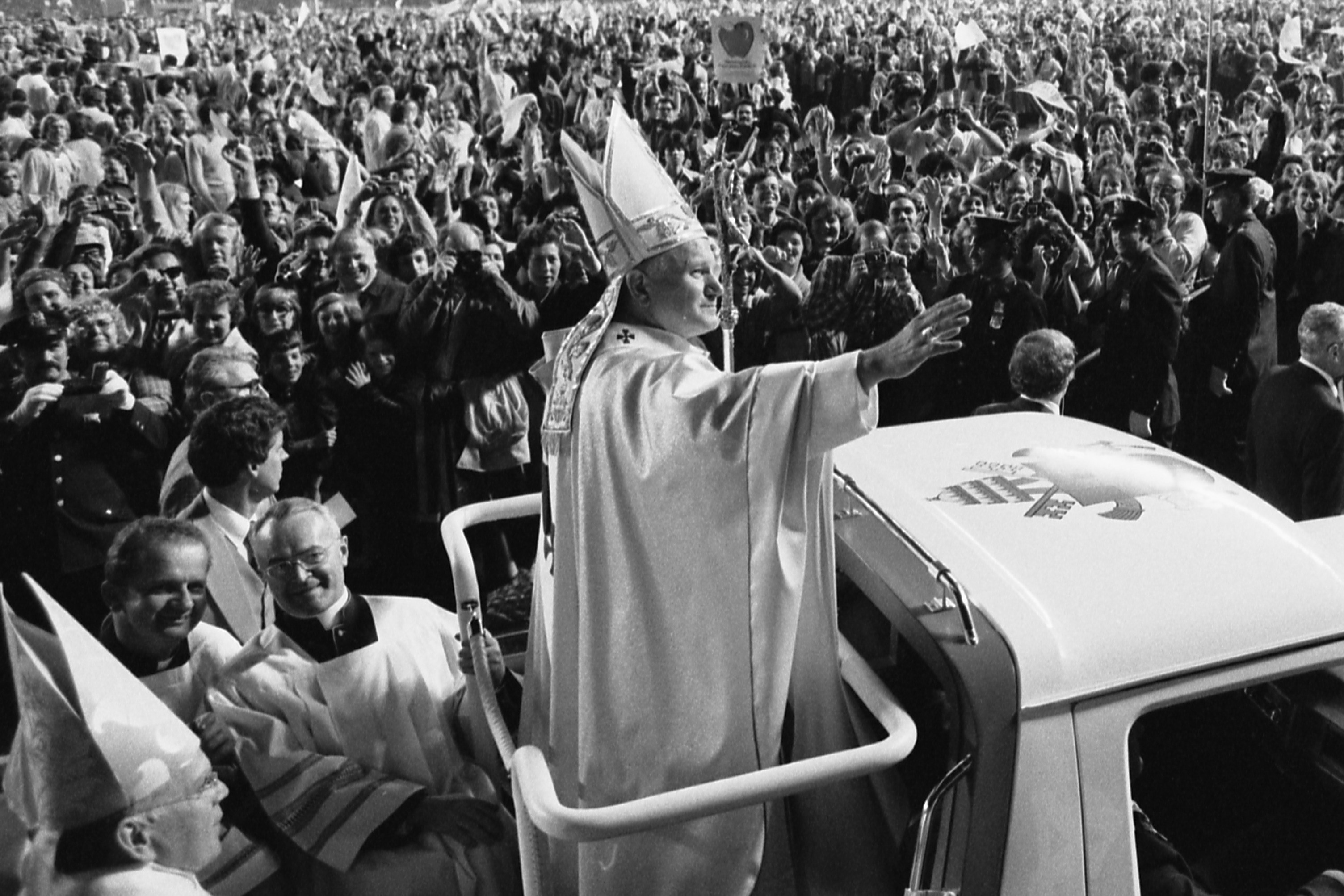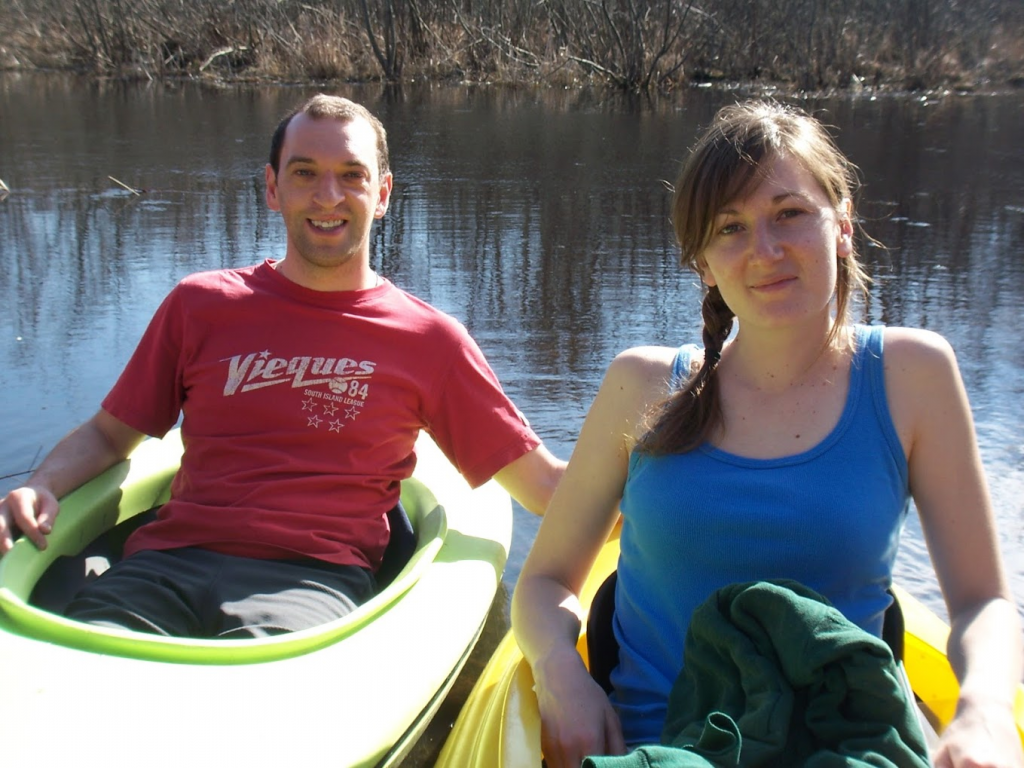It is a great joy for me to be able to begin speaking to you in such a beautiful way: brothers and sisters. Indeed all of us are children of the same Father, beloved and redeemed by God through Christ. Because of this, no one should be considered unknown or strangers to one another even though this is our first meeting together. From the depths of my heart I greet all of you who have gathered here at this cathedral to pray with me the old and familiar prayer, the Angelus.
At this noontime, our faith community embraces you. But our prayers not only embrace you, but also the many men [and women] in Germany who live out their lives with physical disabilities and whose faith-filled spirits are united with ours in prayer and through the television or radio. To them [1] also, I want to greet you as brothers and sisters. You, who are in your houses, alone or in the company of your families and friends, or in a nursing home in which you have been put into communication with us here, in Osnabrück, through the varying ways of communication. In union with all of you, we praise God and give him thanks for the great gift of his love!
This love is the basis of our hope and the breath of our life. God showed us just how much he loves each and every person in an unsurpassable way through Jesus Christ, and how immense a dignity[2] is conferred on each person through him. It is precisely those of you who must be hurting with a physical disability or spiritual suffering should recognize yourselves as friends of Jesus who are loved in a special way[3] by him. He himself says: “Come to me all you who labor and are burdened, and I will give you rest. Take my yoke upon you and learn from me, for I am meek and humble of heart; and you will find rest for yourselves. For my yoke is easy, and my burden light.”[4] (Mt 11:28-30). Thus what seems to human beings as weakness or flaw, is to God a cause for preferential love and care. And that divine criterion becomes our work and our obligation both for the Church and for each Christian. For us, as Christians, it is not very important if someone is sick or healthy. Rather what is of ultimate importance is the following: Are you willing to recognize your God-given dignity, in all circumstances of your life and in all your actions, with a full and conscious faith? Or do you prefer to waste that dignity in front of God with a life of superficiality and an absence of responsibility, a life of guilt, of sin? With disabilities you can become holy persons; you can reach the high goal which God has reserved for human being, the creatures of his love.
Each person receives from God a personal vocation, their special salvific work to do. Just as God has always showed us, God’s will for us and our lives is ultimately a message of joy, a message of eternal salvation. That is also true for you who, as physically disabled people, you have been called in a special way to follow Christ, the path of the cross. Christ invites you, through the words we quoted before, to accept your disabilities as a yoke, as a pathway which follows his footsteps. It is only in this manner that you will not feel heavy burdened with such painful afflictions. The only adequate response to the calling of God through Christ, which God always has demonstrated, is the response of the Blessed Virgin Mary: “May it be done to me according to your word” (Lk 1:38). Only your quick “yes” to the will of God, which often evades our natural way of seeing things, can make you happy and give you deep interior joy at this very moment which cannot be crushed by any outside necessity.
Naturally, to carry out your mission, you need the help of many healthy people. I am thinking right now in a special way of those who have helped you or accompanied you here, and that they, wherever the need may be, are ready to aid the disabled. By virtue of this kinship or of your profession, you put your gifts, time, and your energy at the service of your neighbor. In the name of Jesus Christ, who is encountered in a mysterious way in each person in need, I would like to express my gratitude for your service which is so full of sacrifice, and I would like at the same time to encourage you to continue to follow this path. It is to such generous servants who are destined for the promise contained in the words of the Lord: “Come, you who are blessed by my Father…; I was sick and you visited me, disabled and you tended to me. Inherit the reign prepared for you from the creation of the world.” (cf Mt 25:31-46).
I would also like to give some words of encouragement and gratitude to all of the ministers[5] who, as chaplains to persons with disabilities, carry out important work of the Church. You are in special ways servants of their interior and spiritual joy. Even though there is an urgent scarcity of priests, you do not tire of announcing the Good News, with priestly zeal and with professional competency, to the disabled who are in your care. Help them to contemplate their luck in light of the faith. Indeed it is only faith which can teach them to discover it[6] as a calling to participate in the redemptive suffering of Christ. Be strong in Christ, who is the one that sends you and through you, he carries out the salvation of humankind.
Finally, all humans and all of society are called to lend a hand to the disabled. Indeed everyone has a special obligation to this task. There should not be any barrier or wall of separation between the disabled and the healthy. The person who appears healthy, may certainly have some sort of hidden infirmity. Also a person may tomorrow experience a misfortune or experience its long-term effects. We are all travelers in a very short race, and in one moment or another, the road ends for each of us with our deaths. Even in the times in which we live in good health, the majority of us still experience signs of our limitations and weakness, moments of frailty and of difficulty. We must maintain, for that reason, a life of community and shared solidarity lived out with those of us who are more or less healthy and those of us who are more or less disabled. It is only in this communal way of life which we are able to develop an effective way of living out our human dignity together as a family and a society.
It is for that reason that while I find myself now with our disabled brothers and sisters, I invite all people in this place and around the country watching and listening, to join in our noontime prayer. Before God, all earthly differences disappear; the only important measure that remains is the hope of a believer and the generous love that each person carries in their heart.
In the Angelus prayer we contemplate through three ordinary Hail Marys, the central mystery of faith in the Incarnation of God in the womb of the Virgin Mary. In the same way in which Mary gave her “yes” to the plan of God, we also confess our “fiat”, our “yes” to our Christian vocation. Confidently we respond with a yes, be it a vocation to suffer, be it one of helping and service. And in that way, just as through Mary the Word of God became flesh and became our brother, in that way also our way will be fruitful with the power of God. Suffering accepted in trust, service taken on in love: this is the way in which the Lord desires to come into the world today.
With these thoughts and feelings we join our hands and pray:
[1] “Them” is more inclusive in the Spanish—somewhere in between the separateness of “them” and “these” which in English refers to objects.
[2] Pope Francis seems to prefer to translate this as “infinite dignity”
[3] A preferential love; perhaps an oblique reference to the preferential option for the poor
[4] The New American Bible translation is quoted here and hereafter in Biblical quotations.
[5] The pope’s text reads “priests”. We have changed this in the translation to reflect the increasing awareness of the ministry performed by the laity, including the extraordinary contributions of religious sisters.
[6] It is unclear what “it” is (at least in Spanish), though it seems to reference the aforementioned luck or fate.
Translation from the Spanish to English by Anna Eggleston, M.S.W., and Thomas Eggleston, M.Div of St. John Paul II's Angelus in Osnabrück on Sunday, November 16, 1980.
Featured Photo: St. John Paul II, Thomas J. O'Halloran, photographer, U.S. News & World Report magazine; courtesy of Wikipedia Commons.



